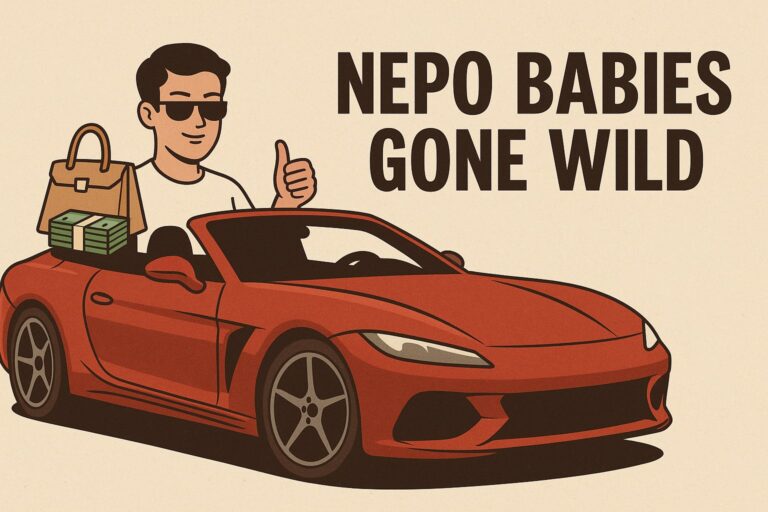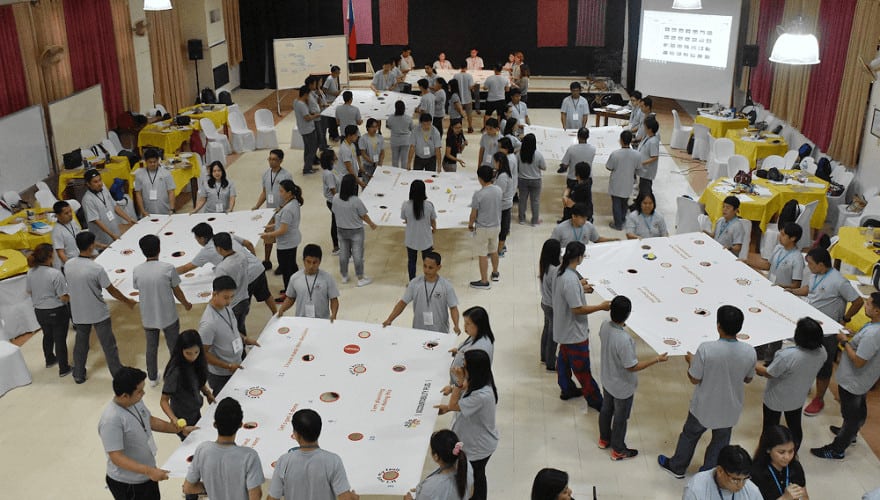Let’s be fair from the start: nobody chooses their parents. If you’re born into a powerful family, that’s not a crime. You didn’t file an application form saying, “Please make me the son or daughter of a senator.” You just showed up in the world with a last name that opens doors before you even learn how to knock.
And honestly, some children of the powerful know this. They work hard, study, and try to earn their place. They understand that privilege is a responsibility, not just a party favor.
But then—there are the others. The ones who treat privilege like a toy store with no closing time. These are the kids who spend like the world owes them, flex like Instagram is their personal stage, and live as if consequences are for other people. In a country where many line up for rice subsidies, they’re busy lining up for luxury watches.
Born lucky is not the issue. Living foolishly is.
When Showing Off Becomes a National Sport
Here’s the problem with these kids: they don’t just spend. They perform their spending. They don’t just enjoy a trip abroad; they document every champagne glass, every shopping bag, every sunset from a private villa. And they do it with captions like “Hard work pays off”—when the hardest work they’ve done is choosing between the black or the white SUV.
For ordinary folks, the effect is like watching a magic trick in reverse: the rabbit disappears, but so does your hope in fairness. Because you know deep down where that money probably comes from. It isn’t the fruit of entrepreneurial genius. It isn’t years of sweat and hustle. In many cases, it’s public money diverted, rebranded as family wealth, and now paraded as designer clothes on TikTok.
And here’s the kicker: they know. They know the stories about corruption, they hear the whispers. But instead of modesty, they double down on excess. It’s like waving a stolen wallet in front of the person you stole it from—and then inviting them to “like and subscribe.”
Why It Hurts More Than It Should
Now, some people will say: “So what? Rich kids spend money. Isn’t that what rich kids everywhere do?” True. Privilege exists in every society. There are trust fund babies in New York, heirs in London, princes in Dubai. But here’s the difference: in countries where wealth comes (at least partly) from legitimate business, people may roll their eyes but they move on.
In the Philippines, it stings deeper. Because the gap between the powerful and the powerless is so wide, and because corruption is such a familiar shadow, every display of excess feels personal. When a young heir flaunts a new sports car, it doesn’t just say, “I’m rich.” It says, “I’m rich with money that should have gone to your school, your hospital, your road.”
It’s not just arrogance. It’s impunity dressed up as lifestyle content.
And people notice. Even if they laugh at the memes or make jokes about it, there’s a silent bitterness that grows. It teaches young Filipinos that merit is irrelevant, that leadership is inherited, and that accountability is optional if your surname is spelled correctly. That is the real damage.
The Choice That Matters
Privilege by itself is neutral. It can lift others or crush them. It can be a platform for service or a trampoline for vanity. Some children of leaders understand this and step carefully, aware of the weight of their name.
But others—those who go wild—become living billboards of what’s wrong with dynastic politics. They remind us that when wealth comes without effort and power comes without accountability, the result is not just spoiled youth. It’s spoiled democracy.
And here’s where citizens come in. Because while we can’t stop people from being born into privilege, we can stop rewarding recklessness with applause, attention, and votes. We can demand humility instead of hubris. We can ask for responsibility instead of reckless displays of entitlement.
The children of the powerful don’t have to be villains in this story. They can choose to live with sense, with service, with some basic awareness that money spent on a luxury bag could have built ten public classrooms. But if they don’t—if they keep going wild—then the joke is no longer on them. It’s on us, for letting them.
If you want Filipino values to show up as real behavior at work…
Let’s turn it into a culture shift experience.
→ Shift Experiences




